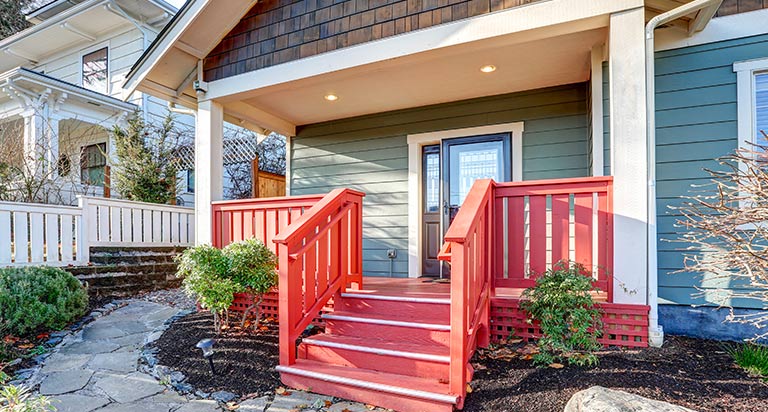What is Mortgage Insurance and How Does it Work?


Highlights:
- Mortgage insurance helps protect a lender against financial loss in the event that a borrower can't repay their mortgage.
- Lenders generally only require mortgage insurance for homebuyers whose down payment is less than 20% of their new home's purchase price. However, there may be certain exceptions to this rule.
- There are a few types of mortgage insurance for different situations, including borrower-paid mortgage insurance, lender-paid mortgage insurance and single-premium mortgage insurance.
When a lender offers you a loan, they accept a certain degree of credit risk — the possibility that they may lose money if a borrower can't repay what they owe. Lenders compensate for this risk in many different ways, such as by requiring collateral or charging high interest rates. If you have a mortgage, your loan may include an additional layer of protection known as mortgage insurance.
What is mortgage insurance?
Mortgage insurance, also called private mortgage insurance (PMI), helps protect a lender against financial loss in the event that a borrower can't repay their loan. In doing so, PMI may help lenders feel more confident extending credit to high-risk buyers. However, it does not extend that same protection to borrowers. If you fall behind on your mortgage payments, you will not receive an insurance benefit, even though you're paying a monthly PMI premium.
Lenders generally only require mortgage insurance for homebuyers whose down payment is less than 20% of their new home's purchase price. However, there may be exceptions to this rule.
If your home loan requires mortgage insurance, you'll most likely pay in the form of a monthly premium on top of your regular mortgage payment. Some buyers may have the option to pay their premium up front at closing. The exact cost of your PMI and the rate at which you pay your lender will depend on the terms of your loan.
Types of mortgage insurance
- Borrower-paid mortgage insurance (BPMI). With BPMI, the most common type of mortgage insurance, you'll pay a monthly premium that's attached to your regular mortgage payments. You won't have to come up with extra cash up front, but you will owe more each month. You can generally cancel your BPMI once you reach 20% equity in your home. You may also be able to get rid of BPMI by refinancing your mortgage.
- Single-premium mortgage insurance (SPMI). If you have SPMI, you'll pay your premium in a lump sum either at closing or financed into the mortgage itself. This type of insurance can reduce your monthly mortgage payments. However, if you finance your premium into your mortgage, you'll be charged interest on that additional amount, which can increase the cost of your loan over time.
- Lender-paid mortgage insurance (LPMI). With LPMI, the lender covers your premium, but you'll pay a higher interest rate on your mortgage in exchange. Unlike BPMI, you won't be able to cancel your premium when your home equity reaches 20%, and you'll continue to pay the same elevated interest rate until your loan is paid off.
- Split-premium mortgage insurance. This type of insurance divides your premium into two parts. You'll pay a portion up front, typically at closing. The balance is paid over time with your monthly mortgage payments. With split-premium mortgage insurance, you can reduce both your monthly payments and the amount of cash you'll need to have on hand at closing. It may be a good option if you have a high debt-to-income ratio (DTI), which measures how much of your monthly income you currently spend on paying off your debts.
- Mortgage insurance premium (MIP). This is a special type of mortgage insurance for loans backed by the Federal Housing Administration (FHA). MIP is required for every FHA loan, not just loans with a down payment of less than 20%.
How to calculate the cost of mortgage insurance
If you'd like to estimate the cost of mortgage insurance for a conventional home loan (meaning those not backed by the FHA), it's likely that you'll spend between 0.5% and 1.5% of your original loan amount each year. This can total anywhere between $30 to $70 per month for each $100,000 you borrow. Your exact premium may vary depending on the size and type of your loan, the amount of your down payment and your credit scores.
To nail down an exact figure, ask your lender to provide the PMI rate for your particular mortgage. You'll also generally find the amount of your mortgage insurance listed in your mortgage documents, including your Loan Estimate and Closing Disclosure forms.
Why is mortgage insurance important?
Mortgage insurance exists to shield lenders from a borrower's potential inability to repay their home loan. And in most cases, mortgage insurance isn't optional.
Mortgage insurance decreases a lender's financial risk, so it may allow borrowers with lower credit scores and less cash for a down payment to qualify for a home loan they could not otherwise secure. So, despite the added cost, mortgage insurance can help some buyers turn their dreams of homeownership into reality.

Sign up for a credit monitoring & ID theft protection product today!
For $19.95 per month, you can know where you stand with access to your 3-bureau credit report. Sign up for Equifax CompleteTM Premier today!



